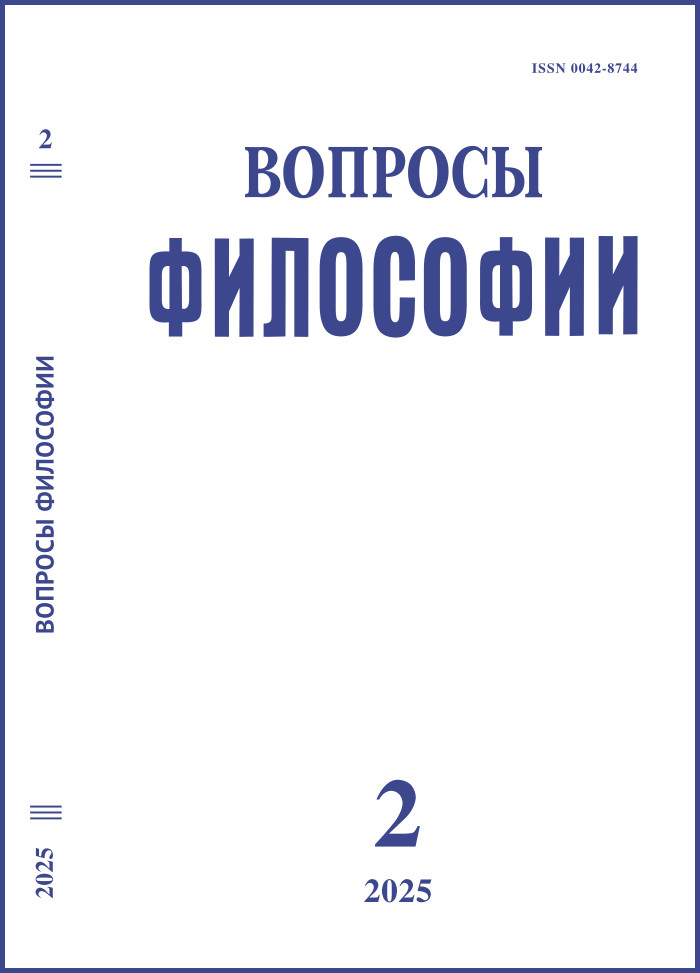The Crisis of Religiosity as a Cultural-Philosophical Problem in the Works of Boris Vysheslavtsev of the 1920s–1930s
DOI:
https://doi.org/10.21146/0042-8744-2025-2-60-69Keywords:
Russian religious philosophy, Boris Vysheslavtsev, Christianity, crisis of culture, crisis of religion, non-religiousAbstract
In this article the author considers the problem of religion and the irreligious posed by Russian philosopher Boris Vysheslavtsev as a basis of his cultural and philosophical concept. The paper defines Vysheslavtsev’s cultural and critical position formulated by him in his key articles of the 1920–1930s. The author of the article considers Vysheslavtsev’s thought as symptomatic of the epoch, comparing it with the thoughts of the authors of the journal “Put’” (The Path), their cultural criticism and analysis of the crisis of religion. The thesis is put forward that in the discussions on the pages of this journal Vysheslavtsev actively develops the discourse on the crisis of religiosity, relying on his earlier judgments about the cause of the crisis of culture in his programme article “Religion and the irreligious”. The Russian philosopher points out one of the key mistakes of the modern era. In his opinion, it lies in the search for a solution to the crisis of culture in the political, economic or social spheres, while its overcoming lies in solving the problem of the spiritual and ethical basis of life. Such a basis is the crisis of religion, which manifests itself in the irreligious consciousness of man in modern society and the desacralisation of the cultural aspects of his life. The article presents Vysheslavtsev’s philosophical analysis of the crisis phenomena of culture, reveals its grounds and the way of its description through the problem of inheritance of Christian tradition, change of its sacral core and value hierarchy of culture. In the author’s opinion, Vysheslavtsev’s philosophical thematisation of the crisis of religiosity should be considered in the general logic of the development of the theme of the crisis of culture posed by European and Russian philosophers in the first half of the 20th century. The article substantiates the thesis that Vysheslavtsev’s thought, being a part of the White emigrant tradition, is close to the approach to the crisis of religion as the root cause of other crises of the epoch in the leading participants of religious and philosophical discussions of this period, constituting a single problem field.

